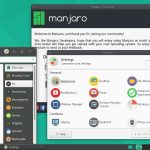Take control of Windows files and folders with RunAsTrustedInstaller

If a Windows program doesn’t have the rights to access a file, Registry key, or carry out some other task, running it as an administrator might solve the problem -- but this won't always be the case.
RunAsTrustedInstaller runs programs with the same privileges as TrustedInstaller, an even more powerful account, giving you extra control over many system objects.
Mozilla MOSS 'Mission Partners' makes it rain $385,000 on open source project developers

Open source is very important nowadays, especially from a privacy and security standpoint. Look, closed source ideology is not inherently bad -- it is a good way to protect a company's code. The problem, however, is that users are increasingly suspicious of software since Edward Snowden's leaks. There is no telling what kind of back doors or other malicious things are hiding in the code.
Mozilla is a longtime open source champion, not only with words, but resources too. Besides producing the wonderful Firefox web browser, the company is increasingly donating money to the cause. Today, the company announces that it is making it rain $385,000 on open source project developers through the Mozilla Open Source Support (MOSS) 'Mission Partners' program.
Fedora 24 is here with GNOME 3.20 -- download the open source Linux distro now

Many people consider Fedora to be an operating system for advanced Linux users, and yeah, I suppose there is some to truth to that. Distros such as Ubuntu and Mint can be easier for beginners, but Fedora is not necessarily a bad choice for these newbies. As more folks live in the browser and enjoy their media there, there can be less of a need for non-free packages. If someone is new to Linux and just needs a web browser and LibreOffice, for instance, why not the rock-solid Fedora?
Today, Fedora finally achieves version 24. True, the team is a bit "late" with the release, but that is fairly commonplace with Fedora, actually. With that said, shipping when ready is better than being beholden to a date, right?
Auto-download and install 120+ applications with just-install

Windows package managers like Npackd provide a single interface where you can find, install, update or remove hundreds of popular PC applications.
Sounds great, but there can be complications. PowerShell dependencies, a GUI to explore, command line switches to learn, repositories to browse– not so easy, after all.
Access Khan Academy videos offline
Ubuntu 'Snap' now universal -- coming to Linux distros like Fedora, Arch, OpenSUSE, and more!

My biggest complaint about Linux based desktop operating systems is fragmentation. There are too many desktop environments, too many package managers, heck, too many distros! Not only can end-users be negatively impacted by too many choices, but more importantly, developers can be spread too thin. Ultimately, the Linux community ends up being unfocused and unable to move the desktop dial.
Today, something miraculous happens. Believe it or not, the Linux Community largely bands together to embrace Ubuntu's "Snap" packages. Yes, you are reading that correctly -- competing Linux-based operating systems like Fedora, Gentoo, Arch, and more, will utilize the now-universal "Snap," meaning Linux software can be made to install regardless of distro. This should be particularly brilliant for operating systems optimized for mobile and IoT.
elementary OS 0.4 'Loki' Beta now available -- download the popular Linux distro here

There are a lot of Linux-based desktop operating systems nowadays. Understandably, it can be hard to pick one. Many Linux users end up being distro-jumpers, constantly trying many, yet never settling.
One popular Linux distro is vying for your attention, hopefully making you feel at home -- no jumping needed. Called elementary OS, it uses an Ubuntu base for stability and software compatibility. The developers put a high value on the user experience -- the interface is both gorgeous and intuitive. Today, the much anticipated 0.4 version -- code-named 'Loki' -- sees Beta release.
Two in three commercial apps with open source code have security vulnerabilities

"If you’re using open source, chances are you are likely including vulnerabilities known to the world at large". This is a quote taken from the latest open source security report released by software company Black Duck.
The company analyzed more than 200 applications that are based on, or partially use, open source material, over a six-month period. The results are that 67 percent of them have vulnerabilities, and every application has at least five vulnerable components.
Collective defense helps security professionals collaborate against cyber crime

To be effective in fighting cyber crime it's important that businesses are able to share intelligence effectively.
Endpoint security company Carbon Black is enabling this with its new Detection eXchange, a collective defense ecosystem which will enable thousands of security professionals to collaborate against hackers and prevent cyber attacks.
Linux Mint 18 'Sarah' BETA available now

With all of the negative press surrounding Windows 10, many folks in my private life are asking me about alternatives. Believe it or not, Linux is often the answer. The first thing I ask them is, for what do you use your computer? Almost everyone tells me things like Facebook, email, and word processing. Well, a combination of Google Chrome and LibreOffice on top of an easy-to-use distro meets those needs perfectly.
The big decision, however, is selecting a Linux-based operating system. Ubuntu is always a good choice, although Unity can be a bit confusing for a transitioning Windows user. Manjaro is a solid choice too, and I highlighted that recently. Ultimately, however, Linux Mint is probably the wisest choice for someone totally new to Linux -- it is familiar, beautiful, and easy to use. Today, version 18 -- named Sarah -- becomes available with both Cinnamon and Mate desktop environments. While newbies should avoid it until the final release, Linux experts can safely jump in.
Mozilla launches Secure Open Source (SOS) Fund

Open source software is ideal for security. Its transparency allows code to be publicly reviewed and audited. This not only helps to detect bugs and vulnerabilities, but intentional backdoors too. In contrast, closed source software can be a mystery to users -- who knows what is lurking in your favorite such programs?
Unfortunately, auditing open source software takes resources. While everyone has the freedom to review code, most consumers do not know how to do so, meaning things can be hiding in plain sight because folks with the know-how don't have the time to look at it. Thankfully, Mozilla is aiming to increase resources with its newly-formed Secure Open Source (SOS) Fund. To show just how committed the Firefox-maker is to the cause, it has already earmarked a half million dollars.
Download Manjaro Linux 16.06 'Daniella' now -- a solid Windows 10 alternative

Windows 10 is a great operating system from a usability standpoint. Unfortunately, between the privacy issues and Microsoft's unethical upgrade tactics, more and more folks are turned off to it. Luckily, thanks to Linux, users don't have to tolerate the company's shady behavior.
If you want to switch to Linux, please know that while Ubuntu is a great operating system, it is not the only OS based on that kernel. Quite frankly, there are too many distributions, but I digress. Another fairly easy-to-use Linux-based operating system is Manjaro. For many folks leaving Windows, the default UI should be an inviting sight. Today, version 16.06 code-named "Daniella" becomes available for download. Will you format your Windows drive and join the Linux community?
The Linux Foundation announces the 2016 LiFT Scholarship Program -- here's how to apply

If you are into technology and computers, but unsure about a career path, open source and Linux are both wise focuses. While the job market cannot be predicted with absolute certainty, it is undeniable that both of those things are increasingly important. The Linux-based Android is the most popular mobile operating system, while major companies like Microsoft, Google, and Apple embrace open source.
The problem with education nowadays is the high cost. Many people can't afford to pay for classes out of pocket, and if they take out student loans, they can end up in debt for many years. Luckily, scholarships can help alleviate the stress of education costs. Today, The Linux Foundation announces the 2016 LiFT Scholarship Program, offering a free course and certification exam for chosen applicants. If you want to experience formal learning of Linux, you should definitely apply.
New API helps open-source developers 'become license-aware'

The Open Source Initiative (OSI), the steward of the Open Source Definition (OSD), announced today it has created a machine readable publication of OSI approved licenses.
According to the organization, the API will allow third parties to "become license-aware", giving businesses everywhere the means to determine if a license is open source or not.
How to secure your open source code

It’s an open source world. Black Duck and Northbridge’s recent 2016 Future of Open Source Survey found that 78 percent of the over 1300 respondent companies said they run open source software. The number is likely much higher.
Black Duck finds open source software (OSS) in over 95 percent of the applications we analyze for clients. It’s easy to understand why. Open source adds needed functionality while lowering development costs and accelerating time to market. But securing and managing open source code still remains a challenge for many organizations.
Recent Headlines
BetaNews, your source for breaking tech news, reviews, and in-depth reporting since 1998.
© 1998-2025 BetaNews, Inc. All Rights Reserved. About Us - Privacy Policy - Cookie Policy - Sitemap.
